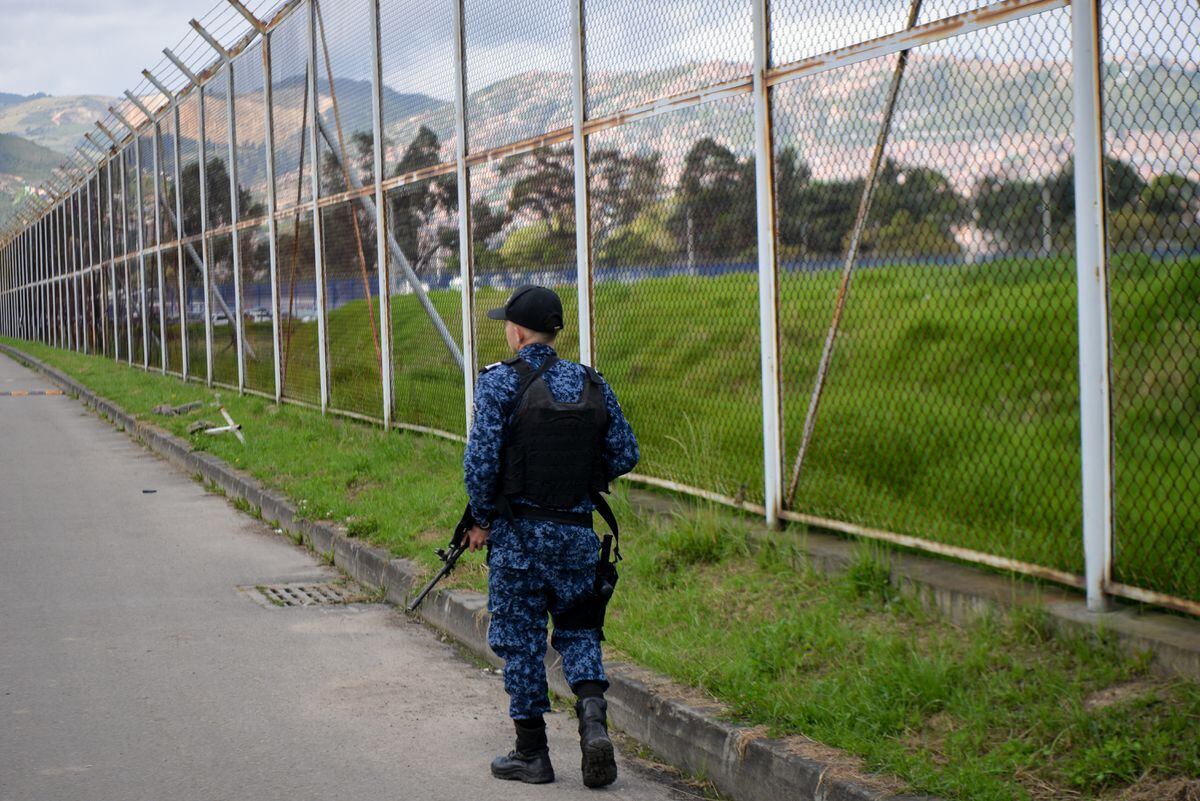In what seems to be an eternal return, the Government of Colombia declares this Monday a new prison emergency.
The Minister of Justice, Néstor Osuna, explained that the Executive seeks to confront a wave of violence against prison officials, after this Sunday two hitmen killed guard Jesús Cárdenas Barrera as he left the Cartagena de Indias prison.
So far this year, guard Carlos Sandoval was also murdered in Cúcuta, and Nancy Canencio in Medellín, Juan Rosero and Diego Espinosa in La Plata (Huila) and Andrés Agredo in Jamundí (Valle del Cauca) suffered attacks.
It is the fourth declaration issued by the Colombian State in two decades.
The minister assured that the attacks on officials are retaliation for the “very forceful blows to the leaders of high-impact criminal structures” that the Government has achieved.
In addition to these attacks against specific officials, unknown individuals shot at the entrance to the prison in the city of Armenia at the beginning of February, and last Thursday the place appeared with threatening pamphlets.
“After 12, anyone who lets themselves be caught will be discharged, whoever it is, we don't look at ranks, or anything like that.
We want dialogues and they ignored us.
“We are going to do what we have to do for you,” says the anonymous person.
Among the measures taken by virtue of the declaration, the National Penitentiary and Prison Institute (INPEC) will limit the visits and communication rights of some inmates.
In addition, the Government will reinforce the police and military presence around all the country's prisons.
The entity explained this Sunday that security rings were established in the Picaleña prisons in Ibagué and in La Picota in Bogotá.
The INPEC workers' union, the Union of Penitentiary Workers (UTP), has pointed out the existence of a group called Death to Oppressive Guardians (MAGO), allegedly responsible for the recent attacks.
Precisely, the anonymous one that appeared in Armenia bears that name.
Christian Edisson López Mora, national vice president of the association, explains to EL PAIS that in the last five years 82 INPEC officials have been murdered.
The situation in Colombian prisons has been the subject of criticism for several decades.
The Constitutional Court found in 1998 that overcrowding, violence and in general the conditions of penitentiary centers constitute systematic violations of human rights, which is why it declared a state of affairs unconstitutional.
In 2022 it was confirmed that the situation remains the same, almost a quarter of a century later.
In addition to the poor conditions of the inmates, there are frequent cases in which they maintain control of their criminal organizations, as was recently known with the extortionate audios sent from a Bogotá prison by the leader of the Rastrojos Costeños gang.
Subscribe here
to the EL PAÍS newsletter about Colombia and
here to the WhatsApp channel
, and receive all the key information on current events in the country.

